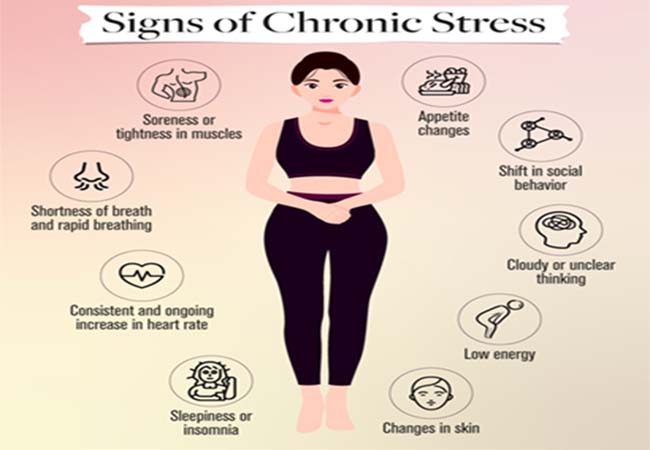As a universal condition, headaches affect people of all ages and genders. However, headaches in women are occasionally indicative of more serious health conditions that necessitate medical attention, experts at the Cleveland Clinic say.
Although most headaches are minor and may be treated with over-the-counter pain medications and self-care, it’s crucial for women to know when a headache warrants serious medical attention.
Women can better decide whether or not to seek medical counsel or treatment if they have a firm grasp of the probable reasons and symptoms.
Hormonal fluctuations

According to Mayo Clinic, hormonal fluctuations are a major cause of concern when it comes to women’s headaches.
Headaches are a common symptom of the hormonal shifts that occur during the menstrual cycle, pregnancy, and menopause.
Some women get migraines just before or during their periods. Extremely painful and pulsating, these headaches frequently come with accompanying symptoms, including dizziness and intolerance to light and sound.
If these headaches are interfering with your everyday life or getting worse over time, you should see a doctor to get an accurate diagnosis and treatment plan.
Other medical conditions

San Bernardino
Also worrying is the prospect of something medically serious going on beneath the surface.
According to WebMD, migraines, anxiety, and cluster headaches, as well as more serious disorders such brain tumors and aneurysms, can all manifest as headaches, and women are preferentially affected by them.
The severity, location, time frame, and other symptoms of the headache are all important factors to consider. Get medical help right away if the headache comes on suddenly, is really severe, or is otherwise out of the ordinary.
Pregnancy

In pregnancy, frequent or severe headaches may signal preeclampsia or hypertension, Mayo Clinic adds.
In addition to elevated blood pressure, preeclampsia causes harm to other organs like the liver and kidneys.
If a mother is experiencing persistent headaches in addition to other symptoms such as swelling, changes in eyesight, or stomach pain, she should seek medical assistance immediately to ensure the health of herself and her unborn child.
Birth control pills

As pointed out by Healthline, it’s important for women to know that hormonal contraceptives like birth control pills, patches, and rings can cause adverse effects like headaches.
Hormonal contraceptives can produce headaches, and while they are usually mild and short-lived, they may become severe and linger for days. If a woman on hormonal contraceptives develops severe headaches, she should talk to her doctor about possible alternatives or dosing adjustments.
Stress and poor lifestyle choices

Women are not immune to the effects of stress and poor lifestyle choices when it comes to headaches.
Chronic stress from trying to meet everyone’s expectations at work and at home might lead to tension headaches.
Headaches can be made worse by not getting enough sleep, not drinking enough water, not eating enough, and drinking excessive amounts of caffeine or alcohol.
By becoming aware of and making adjustments to these factors, you can lessen the number and severity of headaches you experience.
Conclusion
In conclusion, headaches are very frequent, but women should be aware of the warning symptoms that may indicate they need to see a doctor.
Do not disregard severe and continuous headaches, headaches related to hormonal changes or pregnancy, rapid headache onset, or headaches accompanied by other worrying symptoms.
In order to determine the origin of the headache and receive appropriate therapy, it is best to speak with a medical specialist. Headaches can be mitigated by avoiding triggering factors, learning to cope with stress, and leading a generally healthy lifestyle.
In the long run, women’s health can greatly benefit from preventative measures taken to better understand and treat headaches.


